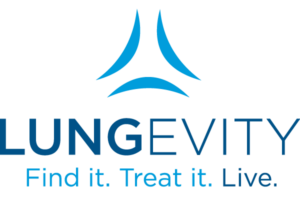 A recent ASCO Post study cites research confirming that 81% of Americans are health care information seekers, and that more than three-quarters of us get our information online.1 The study also revealed troubling indicators that much of that content, including the most popular social media articles related to the four most common cancers (breast, lung, colon/rectal, and prostate),2 contains harmful information that could lead to delays in patients seeking treatment. Of even greater concern is the news that content containing inaccurate data often attracts more attention and reader engagement than content with evidence-based information.
A recent ASCO Post study cites research confirming that 81% of Americans are health care information seekers, and that more than three-quarters of us get our information online.1 The study also revealed troubling indicators that much of that content, including the most popular social media articles related to the four most common cancers (breast, lung, colon/rectal, and prostate),2 contains harmful information that could lead to delays in patients seeking treatment. Of even greater concern is the news that content containing inaccurate data often attracts more attention and reader engagement than content with evidence-based information.
“Beware of false knowledge; it is more dangerous than ignorance.”
—George Bernard Shaw
As with all cancers, early detection of lung cancer is critical to a newly diagnosed patient’s survival and quality of life. However, because of the lack of a universal early-detection method for lung cancer, only 22% of all people diagnosed with the disease are expected to survive 5 years or more.3 If caught early, when it is most treatable, the likelihood of 5-year survival improves dramatically.
The good news is that scientific advancements in lung cancer treatment for patients diagnosed at later stages are happening at a dramatically accelerated pace, which makes the need for up-to-the-minute, accessible, and medically vetted information more important—and impactful—than ever. The public needs to know that lung cancer can affect anyone, regardless of the individual’s smoking history, and more physicians need access to the latest information about lung cancer screening and early detection. LUNGevity leverages all of its marketing channels to make that happen, and it starts—as always—with the facts.
The LUNGevity website is one of the organization’s most important tools for communicating accurate and medically vetted information to the lung cancer community in easy-to-understand terminology. Social media is one of the tools that drives traffic to this comprehensive resource and delivers timely updates. The difference between useful “knowledge,” as George Bernard Shaw reminds us, and dangerous misinformation begins at home, on the LUNGevity website.
For example, at LUNGevity.org, educational content such as Lung Cancer 101 is reviewed and approved by the LUNGevity Education Editorial Board, which includes pulmonologists; medical, surgical, and radiation oncologists; pathologists; and physician assistants from leading institutions, as well as experienced patient advocates. Recent additions to the site are the Patient Gateways, curated microsites with the latest information on specific types of lung cancer. The first gateway, for people living with KRAS-positive lung cancer, was launched in October 2021, with five other types to follow.
Quite a bit of misinformation has been generated during the COVID-19 pandemic—which LUNGevity combated with a dedicated COVID-19 and Lung Cancer section on the site in both English and Spanish. As understanding of the virus has grown over the past couple years, new features have been added, including Help with Medications (industry updates), COVID-19 Policy Initiatives, and COVID-19 Vaccine FAQs.
The organization also provides a variety of lung cancer resources for patients, caregivers, and advocates, including videos and educational materials in multiple languages, public policy and advocacy initiatives, an international survivorship educational conference, and regional events aimed at educating and raising awareness for anyone touched by lung cancer. All information is obtained from respected and credible sources and is reviewed by lung cancer scientists, medical professionals, and other experts in the field.
It is imperative that anyone whose life has been touched by lung cancer—patients, survivors, and caregivers—is informed about and has access to the recent critical breakthroughs in precision medicine, immunotherapy, and other medical advances available today. That information, from verifiable and medically credible sources, is disseminated daily on LUNGevity’s Facebook, Twitter, Instagram, YouTube, and LinkedIn social channels using infographics, links to scientific studies, scholarly articles, awareness campaigns, and partnerships with national organizations such as Family Reach, a non-profit dedicated to removing the financial barriers standing between patients with cancer and their treatments.
With its focus on research, education, and support, the time and effort made to fact-check and ensure the accuracy of all information curated on LUNGevity’s website, coupled with guidance and expert insights from the organization’s esteemed Scientific Advisory Board, are not only the backbone of a mission to improve outcomes for people with lung cancer—they also reinforce the trust that binds an active online community together.
When lung cancer survivor Lou Torres was first diagnosed, the news sent him to a very “dark place.” Both his parents and several other relatives had died from cancer. He was “prepared for the graveyard,” he said, and his immediate thoughts “were not about fighting [his] cancer, but about figuring out who would take care of my wife when I was gone.” When Lou came upon LUNGevity’s website as part of his online research, he discovered a community of well-informed people who were dealing with similar challenges, but they were coping. When his doctor told him there was a 10% chance that a nodule that had just been removed from his lung would be benign, darkness set in again and he shared his story online.
“It turned out others in the group were going through the exact same thing as I was,” Torres said in a recent blog post.4 “They too were scared after their diagnosis, and that somehow reduced my own fear. They were also incredibly knowledgeable. They led me through the full diagnostic process. They gave me questions to ask my medical team. They helped me better understand what my doctor was telling me, and I started to think that maybe this wouldn’t be the end. These people brought me back to the reality that I could live with lung cancer. Instead of thinking, ‘I’m as good as dead,’ I started thinking, ‘How can I increase my workout by 25% to recover more quickly after surgery.’”
Lou’s experience is what makes LUNGevity’s commitment to accurate and comprehensive information unwavering and essential. Our vision—a world where no one dies of lung cancer—starts and ends with that promise every day. To get there, we need solid facts, expert knowledge, strong advocacy, breakthrough research, and a community that is well-informed. We also need an educated and engaged network of lung cancer advocates, armed with the latest facts and motivated to help others live stronger, better lives. When it comes to the health and well-being of the lung cancer community, there is no room for “false knowledge.” Hope and progress come only from truth.
References:
- 1. The Great American Search for Healthcare Information. Weber Shandwick. Accessed November 17, 2021. https://www.webershandwick.com/wp-content/uploads/2018/11/Healthcare-Info-Search-Report.pdf
- 2. World Health Organization. Cancer. Accessed November 17, 2021. https://www.who.int/news-room/fact-sheets/detail/cancer
- 3. National Cancer Institute. SEER Cancer Statistics Review (CSR) 1975-2018. Accessed November 17, 2021. https://seer.cancer.gov/csr/1975_2018/
- 4. Torres L. Find Your Tribe. LUNGevity blog. October 12, 2021. Accessed November 30, 2021. https://www.lungevity.org/blogs/find-your-tribe





